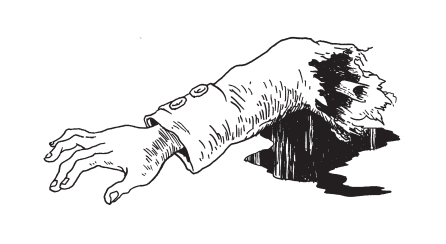1.
Who is Moravagine? The question has no simple answer, but we can begin in November 1912, in a bar called the Biard, on the Boulevard Saint-Michel, in Paris. The poet Blaise Cendrars is talking to a young Jew named Starckmann, a bookbinder’s apprentice, who has asked him about something in the past. “As I told him certain episodes from my life, the idea for Moravagine was born in me, spontaneously, released like a spring by the gears of the conversation,” Cendrars later recalled. “Starckmann had pressed an automatic button… and until daybreak I told him the story of Moravagine as if it were something that had really happened to me.” It was a story that took a lot of telling, about a madman, Moravagine, and his madcap adventures in Switzerland, Germany, and Russia, where he became a revolutionary, and hatched a plot that nearly got the tsar assassinated. Moravagine was lucky to escape with his life, and fled to America, where he… and so on, all night long. Cendrars doesn’t say what Starckmann thought of the story, but it seems safe to assume he was enchanted. “He was a young man who was very devoted to me,” Cendrars wrote, “and who, in 1914, following my example, enlisted on the first day of the war…” Blaise Cendrars lost his right arm in the First World War. Starckmann was killed. If his story had a moral, it might be this: be careful what you believe, especially when you are dealing with Cendrars.[1]
2.
Blaise Cendrars was born on September 1, 1887, at 216, rue Saint Jacques, Paris. His father was an inventor, who bequeathed to the world such wonders as the automatic weaving machine, the spring that closes doors automatically, and the luminous shop-sign. If only his competitors hadn’t copied his inventions, or bought the patents for practically nothing! Monsieur Cendrars would have been rich. But he was not rich, and at the age of eighty-five, he threw himself from a bridge, because, he explained in a letter to his son, “I am getting a little hard of hearing in my right ear. Nature is badly arranged, dear boy.” If it is badly arranged, then Blaise seems to have done all he could to fix it. For the truth is that none of this is true, not the deafness, not the door-spring, not the apartment in Paris, not even the name Blaise Cendrars.
The author of Moravagine was born Frédéric Louis Sauser in the town of La Chaux-de-Fonds, Switzerland. His father sold clocks. Frédéric, who was known as Freddy, or Fred, or, briefly, as Fritz, grew up in Switzerland, Naples, and Egypt, where his...
You have reached your article limit
Sign up for a digital subscription and continue reading all new issues, plus our entire archives, for just $1.50/month.
Already a subscriber? Sign in





